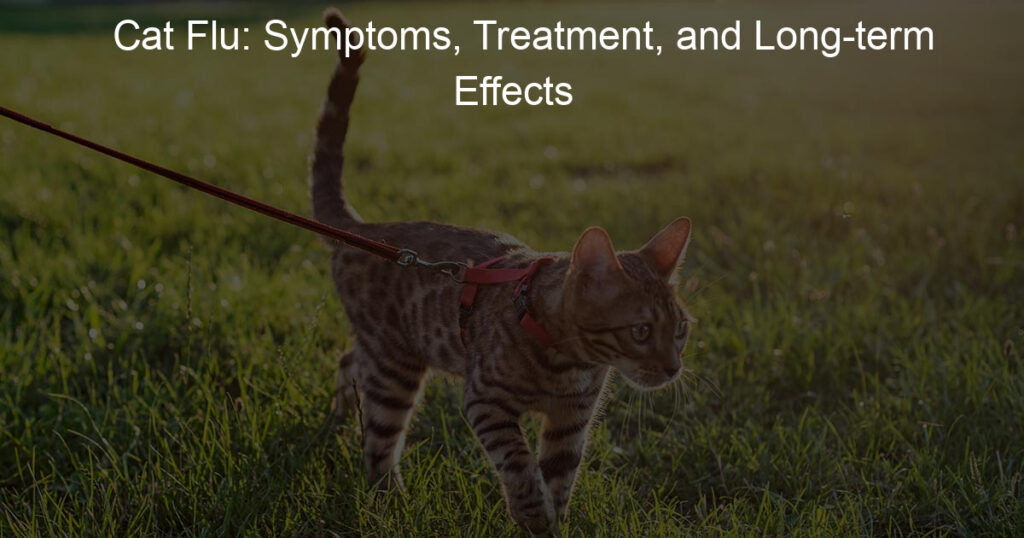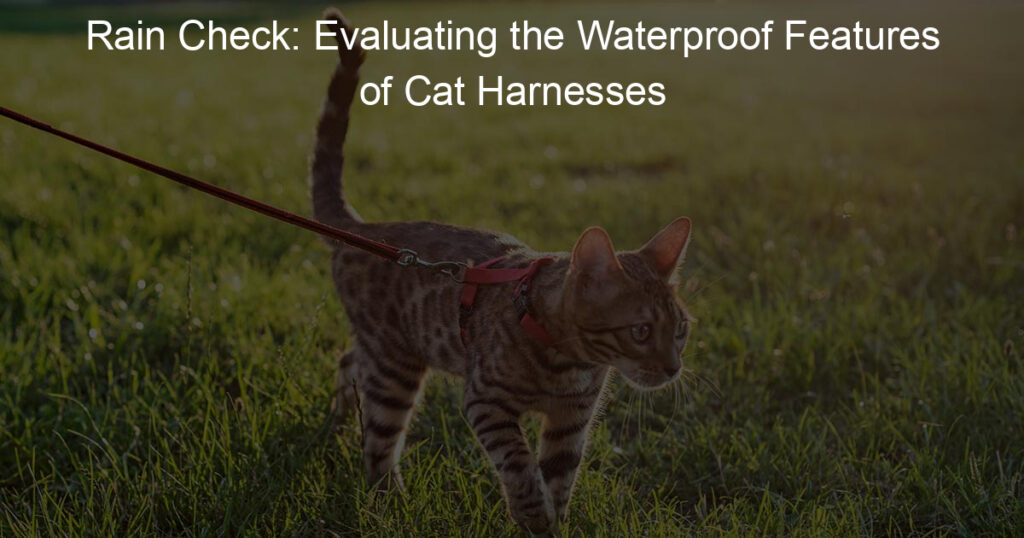Are you worried that your beloved pet cat might have contracted the feline flu? Then this is the perfect post for you. In this blog post, we will discuss every aspect of cat flu, from its symptoms and treatment to potential long-term effects on your furry friend’s health.
We’ll also take a look at what steps you should take in case there’s an outbreak of cat flu among cats in your area so that everyone has peace of mind and our feline friends remain safe and healthy. Whether you’re a seasoned pro or just learning about cat diseases, keep reading to find out everything you need to know about feline influenza!
What are the effects of cat flu?
Cat Flu, or feline infectious respiratory disease, is a common and contagious upper respiratory infection that can severely impact your cat’s health. Symptoms can include fever, runny nose, congestion, breathing difficulties, sneezing, discharge from eyes and nose, loss of appetite, depression, and coughing.
In some cases, it can result in more serious symptoms like pneumonia, especially for young cats and those with weakened immune systems due to pre-existing conditions such as diabetes. Cat flu also has the potential to cause lifelong complications such as conjunctivitis & chronic sinus congestion.
It is easily spread between cats through contact with an infected cat’s saliva or nasal secretions; this transmission can occur through their mutual grooming routines or sharing food dishes. Fortunately, pet owners have multiple options for preventing the flu by vaccinating their cats against it or providing additional support to assist in strengthening its immune system.
Can cat flu cause long-term problems?
Cat flu is a common and highly contagious upper respiratory infection that can affect not just cats, but other animals. It’s been known to cause hospital stays for some felines, with the most severe cases leading to death. While it has some pretty unpleasant symptoms like sneezing, lethargy, coughing, and even fever if treated properly cat flu isn’t usually life-threatening – however, it can have long-term consequences if left untreated.
After recovering from the illness it’s best to provide your cat with ongoing health checks as complications can crop up many months after the initial infection. Act quickly should you suspect that your kitty is suffering from cat flu and remember to keep a watchful eye on them even after they appear to have fully recovered. To make sure your beloved pet remains healthy – and happy – take good care of their well-being and get those checkups!
How do you treat chronic cat flu?
Treating chronic cat flu requires a comprehensive approach that revolves around managing the symptoms, decreasing the likelihood of outbreaks, and boosting your kitty’s overall health. This means plenty of rest and a stress-free environment to give them a chance to heal. You should also seek veterinary care to help manage their symptoms, as well as provide medications like antibiotics and antivirals.
Don’t forget to supplement with vitamins and minerals, as these can bolster their immune system too. Last but not least, make sure they are eating a healthy diet that meets all of their nutritional needs. With the right combination of approaches, you will be able to successfully treat your feline’s chronic cat flu in no time.
What is the best medicine for cat flu?
Cat flu is a nasty business, and the best way to avoid it is to take preventive measures. Vaccinating your cat regularly and boosting their immune system with healthy nutrition is the key. If your cat does contract cat flu, the best medicine – alongside symptom management – is an antibiotic course prescribed by your vet.
This will target any underlying bacterial infection caused by flu viruses, helping your pet to fight off the sickness quickly and safely. As always, follow your vet’s advice carefully and be sure to see them if things don’t improve.
Can cats recover from cat flu without medication?
Cat flu is an unpleasant and highly contagious respiratory illness in cats, so it’s natural that many owners are worried about their beloved pets when they’re suffering from it. Fortunately, some cats can recover from mild cases of the flu without any medication being necessary – they may need a little extra rest and care at home, but they can make a full recovery.
However, if your cat is struggling to recover or if the flu seems to be evolving into something more serious then it’s best to take them to the vet as soon as possible. Medication may be needed to get them on the road to recovery.
Final Thoughts
Dealing with cat flu can be a difficult process. Therefore, it is incredibly important to understand the symptoms, treatment options, and long-term effects of the disease to take the best course of action for treating your feline friend. While cat flu can put a lot of strain on your furry pal and yourself, understanding the illness can help you both get through it together.
With prevention and proper medical care, cats with this virus can make full recoveries and live healthy lives. In conclusion, cat flu may be an issue that animal owners have to face but having the right tools on hand makes all the difference.












